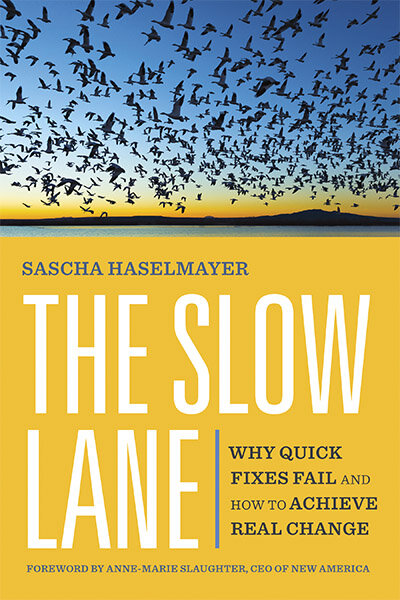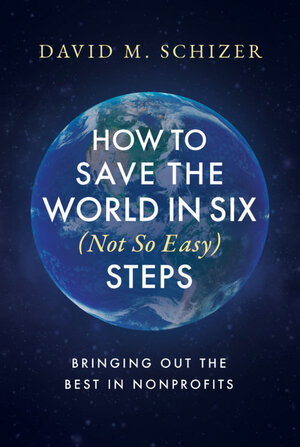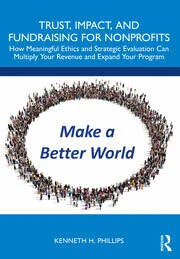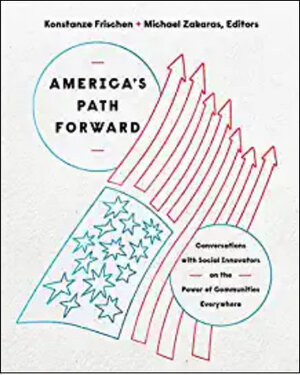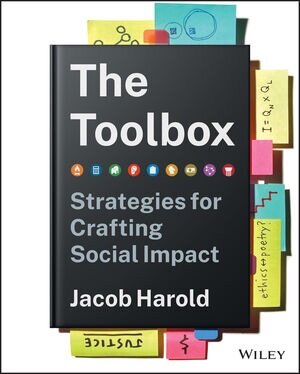The Slow Lane: Why Quick Fixes Fail and How to Achieve Real Change
“If you want to go fast, go alone. If you want to go far, go together,” instructs the oft-quoted “African proverb.” While not among the many epigraphs in The Slow Lane: Why Quick Fixes Fail and How to Achieve Real Change by Sascha Haselmayer, that is the gist of the book. A serial social entrepreneur focused on urban innovation, economic development, and government procurement; a 2020 New America fellowship recipient; and now a senior leader at Ashoka Innovators for the Public, Haselmayer defines the “Slow Lane” to systemic change as “the long game of pursuing audacious ideas by listening, extending trust, and patiently empowering others,” which is also “the fastest way to get to the right place.” By contrast, the Fast Lane prioritizes immediate top-down action—by those who think they know best by dint of their electoral, business, or technological success or other, often patriarchal, positions of authority—which often do more harm than good in the long term.
Based on his study of more than a hundred movements, Haselmayer lays down the five principles of the Slow Lane: hold the urgency, listen, share the agency, nurture curiosity, and use technology as an enabler—offering numerous stories of activists, nonprofits, and governments that exemplify those values as well as cautionary tales of those that do not. Quick fixes are quick because they are dictated by those in power, he suggests; they do not lead to sustainable, equitable, transformational solutions. For example, in response to the 2007-08 financial crisis, the Spanish government rushed to bail out banks and impose higher taxes and deep cuts to public services to pay for those bailouts, whereas the Icelandic government held a national referendum, let banks fail, implemented higher taxes on top earners, expanded the social safety net, and invited citizens to help draft a new constitution. Spain’s youth unemployment rate reached 55.5 percent in 2014 and was at 33 percent as recently as 2021.
To hold the urgency does not mean failing to seek change as quickly as possible, explains Haselmayer; it means not sacrificing “inclusion, participation, and sustainability for speed.” It is precisely because the issue is urgent that the process must be intentional, deliberative, led by those most directly affected by it, and not “us vs. them.” It often is, he admits, a messy, decades-long process. The anti-nuclear green movement in Germany had to quell internal conflicts between radical urban leftists and conservative farmers; it took Ireland’s reproductive rights movement more than four decades to get the government to convene a citizen assembly that would recommend a referendum to remove the 1983 constitutional amendment reinforcing an 1861 ban on abortion. But in the end, those efforts succeeded without devolving into the toxic political divisiveness seen elsewhere.
To hold the urgency does not mean failing to seek change as quickly as possible, explains Haselmayer; it means not sacrificing “inclusion, participation, and sustainability for speed.”
The five principles are interconnected and largely sequential, in that the first principle necessitates the second, which facilitates the third, and so on. Prioritizing inclusivity and participation requires truly listening to those the movement seeks to serve—asking, instead of presuming, what services they need and how it should be delivered—which, in turn, organically shifts power and control so agency over the effort is shared. “You simply can’t enforce empowerment,” Haselmayer writes.
What is refreshing about this book is that Haselmayer is not afraid to say how difficult it is to implement those principles and how our own personal lives tend to mirror those challenges. Nearly every principle requires a fundamental shift in perspective and a leap of faith. Again and again, he describes his own path to the Slow Lane: how it took him years to overcome his prejudice against the green movement that his conservative family had instilled in him, for instance, and how he had to acknowledge that, by asking well-meaning but manipulative questions, he prevented his daughters from being open with him. Even as he highlights the impressive work of User Voice, a UK nonprofit that engages ex-offenders on probation in facilitating discussions between prisoner representatives and prison administrators about how to improve conditions, he asks, “Why is good listening so hard?”
His answer: We need to learn honesty, trust, and humility. “[L]istening comes down to being honest and intentional about two questions: (1) How far are you willing to trust others to know what is right? And (2) how honest are you with yourself about whether you believe that you are superior in your vision or ability to make that judgement?” Only by listening and ceding control can transformation be achieved—“at the speed of trust,” as he calls it.
He points to the efforts of Albina Ruiz, who helped empower Peru’s trash pickers to form associations, obtain loans, win municipal concessions, and gain a seat at the negotiating table to pass a law providing health and employment protections for recyclers—that is, to lead “the holistic change of a system, in which the victims would become the protagonists.” He also highlights Rosanne Haggarty’s work with Common Ground to open a supportive living facility with wraparound services and with Community Solutions to provide cities with “real-time, by name” data so they can offer tailored services—by partnering with the homeless, other nonprofits, shelters, faith organizations, libraries, the police, and emergency services. Citing Community Solutions’ support for community organizing in the Brownsville neighborhood of Brooklyn, New York, Haselmayer emphasizes the importance of empowering local families to take the lead, providing “patient capital and support to let things start slow, nurturing trust, confidence, and capabilities.”
“[L]istening comes down to being honest and intentional about two questions: (1) How far are you willing to trust others to know what is right? And (2) how honest are you with yourself about whether you believe that you are superior in your vision or ability to make that judgement?”
Nurturing curiosity, or encouraging “learning and experimentation,” according to Haselmayer, involves revealing the underlying problems, or “zombie systems”; building bridges to get people in power to act; taking ownership to contribute to the solution; and uniting outsiders to fix it. Here he focuses on the apparently universally dysfunctional system of government procurement, which he helped address by launching an online competition where municipal governments could solicit solutions, later Citymart, to “flip” the zombie.
The fifth principle brings together all the others in that technology is subordinated to taking the time to engage communities, listen and build trust, cede control, and be open-minded in co-creating solutions. The Fast Lane is epitomized by Silicon Valley, Haselmayer suggests, where the latest technology is the be-all and end-all: speed, profitability, market dominance, scale, control. Project ECHO founder Sanjeev Arora and Infosys co-founder and philanthropist Nandan Nilekani, however, believe that “[i]t is the human network that makes the technology more effective, not the other way around.” Rushing to scale a service with a new app without developing collaborative relationships with the people it serves simply will not succeed.
The Slow Lane principles overlap with those behind trust-based philanthropy, such as listening better, ceding power and control to those closest to the issue, and implementing participatory decision making. Haselmayer calls for his principles to be applied more broadly—to community organizers, movements, nonprofits, volunteers, businesses, governments, and parents—and even offers tips on how to get started in our own lives. He also believes that Slow Lane movements help boost democracy and heal divisions in society, for they enable “people who have long been excluded to participate in government and civic life...and invent creative ways to tackle problems.”
Written in an enthusiastic—if at times a tad repetitive—prose style and packed with examples illustrating each principle and how they work together, The Slow Lane is an accessible and hopeful guide to the Slow Lane, where transformational change is achieved “at the speed of trust.”
“Social imagination begins right there, as we begin to chart a course that is not defined by what anyone had believed to be possible,” Haselmayer writes. “Instead, it is defined by what is right.”
Kyoko Uchida is managing editor at Philanthropy News Digest.


